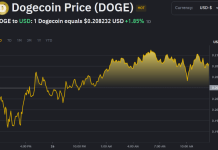As technological advancements continue to reshape industries, the European casino sector is no exception. Blockchain and cryptocurrencies are emerging as transformative forces within this space, offering innovative solutions to long-standing challenges. With blockchain’s ability to provide secure, transparent, and decentralized systems, and cryptocurrencies presenting a fast, anonymous payment alternative, many are predicting these technologies will become the next big bet for online casinos. In Europe, where the gaming industry is rapidly evolving, the integration of blockchain and digital currencies is not just a possibility—it’s a potential game-changer. But how exactly are these technologies influencing the future of European casinos, and what benefits and challenges do they present? This article explores the growing role of blockchain and cryptocurrencies in the European gambling landscape and examines whether they truly represent the next major leap for the industry.
Blockchain’s Key Advantages for European Casinos
Blockchain technology is increasingly becoming a pivotal tool for European casinos, offering several significant advantages that are transforming the gaming industry. One of the key benefits of blockchain is its enhanced security and transparency. By using decentralized ledgers, casinos can ensure that every transaction is verifiable, reducing the risk of fraud and manipulation. This transparency extends to game fairness, with blockchain allowing players to see that games are truly random, building trust in both the platform and its outcomes.
Another major advantage is the speed and cost-effectiveness of blockchain transactions. Traditional banking systems often involve long processing times and high fees, especially for international players. Blockchain, on the other hand, enables almost instant transactions with minimal fees, which is particularly appealing for players who prefer quicker access to their winnings. Cryptocurrencies, powered by blockchain, offer an anonymous way to engage in gaming, catering to users who value privacy.
Data privacy is also enhanced with blockchain. Instead of relying on centralized databases that can be hacked, blockchain stores data across a network, making it far less vulnerable to breaches. This means European casinos can offer their players a more secure environment, protecting sensitive information and preventing unauthorized access.
As more casinos explore blockchain integration, the popularity of crypto-focused games is also rising. Games like the Money Coming game are perfectly aligned with this trend, leveraging the power of cryptocurrency to provide exciting, fast-paced gameplay with blockchain-backed security. These types of games are likely to lead the next wave of innovation in the European gambling scene.
Moreover, blockchain enables a seamless and more inclusive gaming environment. Traditional casinos often face limitations in reaching global players due to regional payment barriers and currency conversion issues. With cryptocurrencies, players from different parts of the world can participate without worrying about currency exchange or high transaction fees. This opens up European casinos to a broader, more diverse player base, allowing them to tap into markets that were previously hard to reach.
Additionally, blockchain’s immutable records help casinos prevent chargeback fraud, which has been a significant issue in the online gaming world. Since transactions on the blockchain are irreversible, players can’t claim fraudulent refunds after losing money, saving casinos from financial losses. Blockchain also has the potential to streamline the internal operations of casinos. Smart contracts—self-executing contracts with the terms written directly into code—can automate many processes, from payout structures to loyalty programs. For example, bonuses and rewards can be distributed instantly and automatically when predefined conditions are met, reducing administrative costs and human error.
The advantages blockchain offers—fairness, efficiency, security, and inclusivity—are too significant for European casinos to ignore. As the technology matures, it will continue to reshape how the industry operates, providing both players and operators with a more transparent, reliable, and innovative gaming experience.
Cryptocurrencies: A New Payment Method in European Casinos
Cryptocurrencies are quickly gaining traction as a preferred payment method in European casinos, offering players an alternative to traditional banking methods. With the growing popularity of Bitcoin, Ethereum, and other digital currencies, many casinos are now integrating crypto options to cater to tech-savvy gamblers who value speed, security, and privacy. One of the most significant advantages of cryptocurrencies in the gambling world is the ability to conduct transactions almost instantly, eliminating the long wait times often associated with traditional bank transfers or credit card payments.
For players, using cryptocurrencies means enjoying quicker withdrawals and deposits. This is a crucial factor for online gamblers who want immediate access to their funds without dealing with the delays of conventional financial systems. Additionally, cryptocurrencies often come with lower transaction fees, especially for international players who typically face hefty charges for currency conversions and cross-border transactions. This cost-effectiveness makes crypto payments appealing to both players and casino operators alike.
Another important benefit of cryptocurrencies is the enhanced anonymity they offer. Unlike traditional payment methods that require detailed personal information, cryptocurrencies allow users to maintain their privacy while making transactions. This is particularly attractive in regions where gambling laws are stricter, as players can engage in gaming activities without exposing their identity. The decentralized nature of cryptocurrencies also means there is no central authority controlling transactions, reducing the risk of third-party interference or account freezes.
As more European casinos adopt cryptocurrencies, they are also integrating crypto-specific games to attract players. For example Fast Parity game offer players a dynamic and engaging experience that aligns with the fast-paced nature of cryptocurrency transactions. These types of games cater to the growing demand for crypto-friendly platforms and demonstrate how casinos are evolving to meet the preferences of modern players.
However, despite the many advantages, there are still challenges to widespread cryptocurrency adoption in the casino industry. Regulatory uncertainties and the volatility of digital currencies are significant concerns. European governments are still defining their stance on cryptocurrencies, and the fluctuating value of coins can affect both players’ deposits and withdrawals. Nonetheless, the convenience and benefits provided by cryptocurrencies are driving their increased use in online casinos.
Cryptocurrencies are revolutionizing the payment landscape for European casinos, providing faster, more secure, and cost-effective options for players. As the industry continues to embrace these digital currencies, their role in shaping the future of online gambling will only become more prominent.
The Regulatory Landscape: Europe’s Stance on Blockchain in Gambling
As blockchain technology gains momentum in the gambling industry, European regulators are faced with the task of creating a balanced framework that promotes innovation while ensuring player safety and compliance. Europe’s diverse legal landscape, with its varying gambling laws from country to country, means that blockchain and cryptocurrencies are subject to different levels of regulation depending on the jurisdiction. This patchwork of rules creates both opportunities and challenges for online casinos looking to implement blockchain-based systems.
Some European nations, such as Malta, have been at the forefront of embracing blockchain in gambling. Malta’s regulatory authorities were among the first to recognize the potential of blockchain technology, implementing progressive policies that allow casinos to integrate blockchain solutions for payments, transparency, and player protection. In fact, Malta’s Gaming Authority has actively promoted the use of blockchain to enhance security and ensure fairness in online gambling, setting the stage for its widespread adoption.
The United Kingdom, another major hub for online gambling, has taken a more cautious approach. The UK Gambling Commission allows the use of cryptocurrencies for gambling but imposes strict requirements to ensure compliance with anti-money laundering (AML) regulations and customer verification processes. Operators in the UK must demonstrate that they can meet these standards while integrating blockchain and cryptocurrency technologies into their platforms. This regulatory rigor is designed to prevent illicit activities while still enabling innovation in the gaming industry.
On the other hand, countries like Germany have more stringent laws that complicate the integration of blockchain and cryptocurrencies. Germany has adopted stricter regulations for online gambling, with specific rules governing the types of payment methods that can be used. As a result, casinos that wish to introduce blockchain solutions must navigate a more complex regulatory environment, ensuring that their operations are fully compliant with national laws.
Despite these differences, there is a growing recognition across Europe that blockchain can enhance the transparency and security of online gambling. The European Union itself has been exploring the potential of blockchain technology across various sectors, and its push for more unified digital policies could pave the way for broader adoption of blockchain in the gambling industry. However, there is still work to be done in terms of creating clear, harmonized regulations that will allow casinos to leverage blockchain to its full potential.
While Europe’s regulatory stance on blockchain in gambling is evolving, the general trend is toward cautious adoption. Countries like Malta and the UK are leading the way, creating frameworks that enable innovation while ensuring compliance with strict legal standards. As the benefits of blockchain technology become increasingly apparent, it is likely that more European nations will follow suit, developing regulations that foster its growth in the casino industry.
Will Cryptocurrencies and Blockchain Reshape the European Casino Industry?
As the European casino industry continues to evolve, the integration of blockchain technology and cryptocurrencies is poised to play a pivotal role in shaping its future. The current trends point to a significant shift, where these innovative technologies will become increasingly central to the way online casinos operate, offering new opportunities for both players and operators.
One of the most notable trends is the rise of decentralized casinos, which leverage blockchain’s transparency and security to offer a completely different gaming experience. These platforms operate without a central authority, using smart contracts to manage all transactions and game outcomes, thereby eliminating the need for intermediaries. This not only reduces operational costs for casinos but also boosts player trust by ensuring that game fairness and payouts are verifiable through the blockchain.
Another future trend likely to emerge is the broader acceptance of cryptocurrencies as a standard payment option in online casinos. As more players become familiar with digital currencies and appreciate their advantages—such as faster transactions, lower fees, and enhanced privacy—casinos will be motivated to expand their crypto offerings. We can expect to see an increasing number of casinos accepting a wider variety of cryptocurrencies, beyond just Bitcoin and Ethereum, to cater to a more diverse player base.
The integration of blockchain could also transform how loyalty programs and rewards are managed in the industry. With blockchain’s ability to automate processes through smart contracts, casinos can develop more sophisticated loyalty systems that are secure, transparent, and instantly redeemable. Players could accumulate tokens or points that are stored on the blockchain and seamlessly exchange them for rewards or use them across multiple platforms, creating a more unified gaming ecosystem.
A growing focus on regulation is another trend to watch. As blockchain and cryptocurrencies gain traction in the gambling industry, European regulators are likely to establish clearer guidelines for their use. Countries that are currently cautious, like Germany, may gradually adopt more flexible policies, while early adopters like Malta and the UK will continue refining their regulations. The European Union, in particular, may take steps toward creating a unified regulatory framework that promotes the safe and responsible use of these technologies in online gambling.
The future of the European casino industry looks increasingly intertwined with the growth of blockchain and cryptocurrencies. From decentralized platforms and enhanced payment systems to more sophisticated loyalty programs and blockchain-based games, the opportunities are vast. As technology continues to advance, it is clear that these trends will reshape how both operators and players engage in the world of online gambling, making the industry more secure, transparent, and innovative.
Disclaimer: This article contains sponsored marketing content. It is intended for promotional purposes and should not be considered as an endorsement or recommendation by our website. Readers are encouraged to conduct their own research and exercise their own judgment before making any decisions based on the information provided in this article.



































